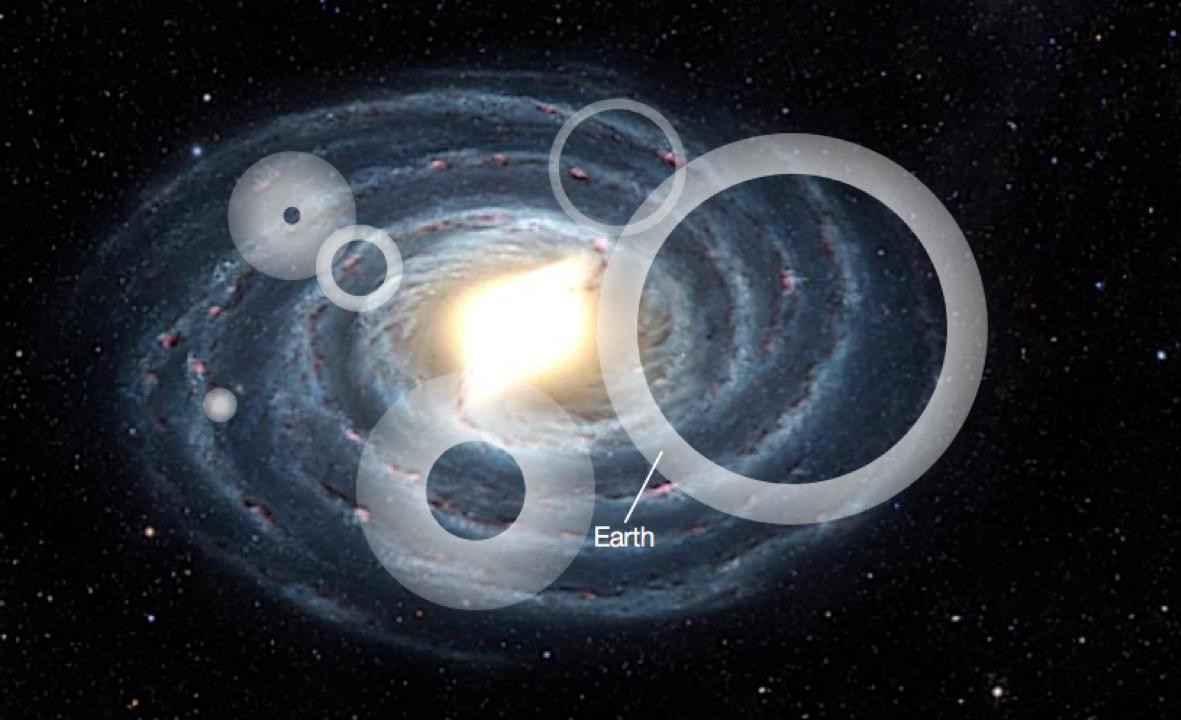When can we be certain that we’re the only civilization in the galaxy?
Are we alone in the universe? Most science-fiction authors would answer that question with a no. Scientists, however, aren’t so sure. SETI projects, such as Breakthrough Listen, have not produced any clear results, at least not yet. But assume we search and search and search – and find nothing. Will there come a moment when we can say with some certainty that we are alone in the universe – and can stop searching?
Yes, says Claudio Grimaldi from the École Polytechnique Fédérale de Lausanne (Swiss Federal Institute of Technology Lausanne; EPFL). In a paper in PNAS, he calculated when and with what likelihood we should receive signals if there were a civilization at a similar stage of technological development within a certain radius of Earth. The calculation assumes that the signals propagate from the source at the speed of light in all directions and only reach us after a certain amount of time. For example, if we receive no signal within a radius of 1000 light years from us, according to his calculations there is still a ten-percent chance that there is a civilization within this area, but we are simply technically not able to hear it. Conversely, if we receive at least one signal from within the 1000-light year radius, then our Milky Way should be full of life.
However, it will be a sad day if we are not able to measure even a single signal from within a radius of 40,000 light years – because that will mean we are likely alone in the galaxy. It will take a long time until we can be certain, however, since technically we can only currently listen to signals from a radius of around 40 light years into the universe. But in 40,000 years at the latest, everything will have been resolved and nobody will have to ask this question anymore.
Unless we start asking about civilizations in the Andromeda Galaxy, because these calculations only apply to the Milky Way.
